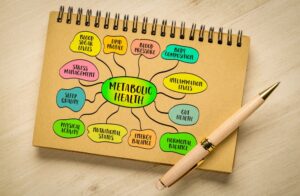Erectile Dysfunction in Young Men: An Emerging Concern
Erectile dysfunction (ED) has long been considered an issue primarily affecting older men, but recent studies show that a growing number of young men are facing this challenge. While it is easy to assume that ED only becomes prevalent with age due to natural declines in testosterone or other age-related factors, the reality is that men in their 20s and 30s are increasingly experiencing this issue. It’s an alarming trend that demands attention, as the causes can range from physical to psychological factors, each of which can have lasting effects on a man’s quality of life.
This article will explore the potential reasons behind the rise in erectile dysfunction among young men, discussing both the physical and emotional toll it takes. By understanding the causes and solutions, men can take proactive steps to improve their sexual health and overall well-being.
Understanding Erectile Dysfunction
Before diving into the causes and potential solutions for erectile dysfunction in young men, it’s essential to understand what ED is. Erectile dysfunction is defined as the persistent inability to achieve or maintain an erection that is firm enough for sexual intercourse. While occasional difficulty in achieving an erection is normal, especially when stressed or tired, consistent issues may signal an underlying health problem.
Common Causes of Erectile Dysfunction in Young Men
The causes of ED can be categorized into physical, psychological, and lifestyle factors. While some young men may be dealing with a specific cause, others may be affected by a combination of issues.
1. Physical Factors
One of the most significant contributors to erectile dysfunction in young men is physical health. Conditions like diabetes, heart disease, obesity, and high blood pressure are often linked to ED. While these conditions are typically associated with older adults, they are becoming increasingly common in younger individuals due to lifestyle factors like poor diet, lack of exercise, and excessive alcohol consumption.
- Obesity and Diabetes: Excessive weight can affect hormone levels, including testosterone, which plays a critical role in sexual function. Additionally, type 2 diabetes, often linked to obesity, damages blood vessels and nerves, further complicating the ability to achieve an erection.
- Cardiovascular Health: Poor cardiovascular health affects blood flow throughout the body, including the penis. Conditions like hypertension (high blood pressure) and atherosclerosis (narrowing of the arteries) can impede blood flow, making it difficult to achieve or maintain an erection.
- Hormonal Imbalances: Although more common in older men, young men can also experience low testosterone levels. This condition, known as hypogonadism, can lead to decreased libido and erectile issues.
2. Psychological Factors
Mental health plays a significant role in sexual performance. Young men today are under an increasing amount of stress, which can lead to psychological issues that contribute to erectile dysfunction. Anxiety, depression, and low self-esteem are major psychological contributors to ED in young men.
- Performance Anxiety: This occurs when a man feels pressure to perform sexually and becomes overly concerned with satisfying their partner. This anxiety can interfere with arousal and make it difficult to achieve or maintain an erection.
- Depression: Men who are suffering from depression often experience a decrease in libido, which can lead to erectile dysfunction. Additionally, some antidepressant medications are known to have sexual side effects, further complicating the issue.
- Stress: The demands of modern life—whether it’s related to work, relationships, or financial concerns—can elevate stress levels. Chronic stress triggers the body’s fight-or-flight response, diverting blood away from less critical systems like sexual function.
3. Lifestyle Factors
Young men often don’t realize that their daily habits can have a significant impact on their sexual health. While occasional indulgences may not pose a long-term threat, prolonged exposure to unhealthy behaviors can lead to erectile dysfunction.
- Alcohol and Drug Use: Excessive alcohol consumption and recreational drug use can have detrimental effects on sexual health. Alcohol is a depressant, and in large amounts, it can dull sexual desire and inhibit physical performance. Drugs like marijuana, cocaine, and opioids can also lead to erectile dysfunction, particularly when used frequently.
- Smoking: Smoking not only affects lung health but also damages blood vessels, reducing blood flow throughout the body, including to the penis. Over time, the toxins from cigarettes can lead to long-term erectile issues.
- Sedentary Lifestyle: A lack of physical activity contributes to poor cardiovascular health, obesity, and other factors that lead to ED. Regular exercise, particularly cardiovascular activities like running or swimming, can improve blood flow and overall sexual function.
The Emotional Toll of Erectile Dysfunction
For many young men, the experience of erectile dysfunction is more than just a physical issue—it’s an emotional burden as well. Men who struggle with ED may experience feelings of inadequacy, shame, and embarrassment, which can lead to a cycle of self-doubt and diminished self-esteem. The longer the condition persists, the more it can affect a man’s relationships and overall mental health.
1. Impact on Relationships
Erectile dysfunction can strain even the healthiest of relationships. Many men feel reluctant to discuss their condition with their partner, which can lead to misunderstandings or assumptions of disinterest. On the other hand, those who do share their struggles may worry about being judged or rejected. Either way, the inability to engage in a fulfilling sexual relationship can create distance between partners and cause emotional frustration.
2. Effect on Mental Health
The psychological impact of erectile dysfunction often feeds into the condition itself. Men who struggle with ED may become more anxious or depressed, which only worsens their symptoms. This vicious cycle can be difficult to break without the proper support and intervention.
When to Seek Help
It’s essential for young men dealing with erectile dysfunction to recognize that they don’t have to suffer in silence. There are several effective treatments available, ranging from medication to therapy, and lifestyle changes that can significantly improve sexual function.
1. Medication
Phosphodiesterase type 5 inhibitors (PDE5 inhibitors) like Viagra and Cialis are among the most commonly prescribed medications for erectile dysfunction. These drugs work by increasing blood flow to the penis, making it easier to achieve and maintain an erection.
It’s important to note that while these medications are effective, they are not a long-term solution if the underlying cause of ED is related to poor physical or mental health. Men should work with their healthcare provider to identify and address any contributing factors.
2. Therapy
For men whose ED is linked to psychological factors like anxiety or depression, therapy can be an essential part of treatment. Cognitive-behavioral therapy (CBT) is particularly effective for treating performance anxiety, helping men to reframe negative thoughts and reduce stress related to sexual performance.
Couples therapy may also be beneficial for men whose erectile dysfunction is causing strain in their relationships. Open communication and emotional support from a partner can be invaluable in overcoming the emotional toll of ED.
3. Lifestyle Changes
Making healthy lifestyle changes can go a long way in improving erectile function. For men who smoke, quitting smoking is one of the most impactful changes they can make. Likewise, reducing alcohol consumption and avoiding recreational drugs can restore sexual function in many cases.
Incorporating regular exercise into daily routines not only improves cardiovascular health but also reduces stress, both of which are critical factors in combating ED. Eating a balanced diet rich in vitamins and nutrients can further support overall health and sexual performance.
Conclusion: Taking Action for Better Health
Erectile dysfunction in young men is a growing concern, but it is by no means a life sentence. With the right approach—whether it be through medication, therapy, lifestyle changes, or a combination of all three—men can overcome the challenges posed by ED and regain control of their sexual health.
If you’re a young man struggling with erectile dysfunction, it’s important to seek help sooner rather than later. Addressing the issue now can prevent further emotional and physical complications down the road.
For those seeking expert guidance, Red Line Health and Wellness in Burleson, Texas, is here to help. Our team specializes in men’s health, offering tailored solutions to address erectile dysfunction and other sexual health concerns. Don’t wait—contact us today at 817-631-8036 to schedule a consultation and start your journey toward better health.





